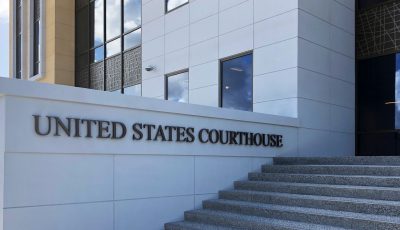‘Only a cheater afraid of the rules of the game stacks the deck with five aces’
Editor’s Note: Rep. Celina Babauta (D-Saipan), who chairs the House Judiciary and Governmental Operations Committee, delivered the following remarks in the Senate Chamber during the afternoon session Monday, February 28, 2022. It is being published in two parts due to its length.
First of two parts
Good afternoon, members of the 22nd Senate. My name is Celina R. Babauta and I appear before you in my official capacity as a duly elected member of the 22nd House of Representatives.
I want to state for the record that I denounce the proposed rules adopted and passed by the Senate joint committee of Executive Appointments and Governmental Investigations, and the Committee on Judiciary, Government, Law and Federal Relations, respectively chaired by Sen. Francisco Q. Cruz (R-Tinian) and Sen. Karl King-Nabors (R-Tinian), in their joint committee meeting held last Friday in this chamber, and further state that these proposed rules are not congruent with the applicable statutes and a complete betrayal of the CNMI Constitution.
The Open Government Act mandates that the public be afforded the right to make oral comments during the public comment period. Written comments are not sufficient. Even if COVID-19 concerns were applied, the Centers for Disease Control and Prevention guidelines and the House and Senate policies allow for public comments (in the lobby for example). These proposed rules were adopted in violation of the letter and spirit of the OGA law which states:
TITLE 1: GOVERNMENT
DIVISION 9: MISCELLANEOUS PROVISIONS
§ 9904. Meetings Declared Open and Public.
All meetings of the governing body of a public agency shall be open and public and all persons shall be permitted to attend any meeting of the governing body of a public agency, except as otherwise provided by this chapter. The governing body shall afford all interested persons an opportunity to submit data, views, or arguments, in writing, on any agenda item. The governing body shall also afford all interested persons an opportunity to present oral testimony on any agenda item. The governing body may provide for reasonable administration of oral testimony by rule.
Furthermore,
TITLE 1: GOVERNMENT
DIVISION 9: MISCELLANEOUS PROVISIONS
§ 9907. Ordinances, Resolutions, Rules, Regulations, etc., to be Adopted at Public Meetings; Sanction; Notice.
No governing body of a public agency shall adopt any ordinance, resolution, rule, regulation, order, or directive except in a meeting open to the public and then only at a meeting, the date of which is fixed by law or rule, or at a meeting of which notice has been given according to the provisions of this chapter. Any action taken at meetings failing to comply with the provisions of this chapter shall be null and void.
The Open Government Act expressly prohibits this lack of transparency that was exhibited in the passage and adoption of the Senate Rules on Friday, Feb. 25, 2022, during the Joint Committee meeting. These proposed rules were handled as if they were a threat to national or Commonwealth government security or some trade secret and were treated as secret document. The fact that a recess was called to accommodate Sen. Justo S. Quitugua’s request for a copy of the final amendments to the rules during the joint committee meeting last Friday demonstrates that the final proposed rules were kept secret from him as well and he is a member of not just one but both committees. He was not provided an advance copy to any of the final amendments of these proposed rules. Because of this willful violation of the Open Government Act, there can be no other interpretation than the rules that were adopted by the joint committee are null and void pursuant to the law. This body cannot adopt and pass these proposed rules because it is not properly before this body.
In addition, when the joint committee adopted and passed these rules last Friday, they violated the constitutional provision that the Legislative Bureau is the only entity tasked to assist the Legislature. It is their raison d’être.
ARTICLE II, Section 17
(b) The director shall employ all necessary staff, other than personal staff of the members of the legislature, pursuant to budgetary allocations. The staff members shall include legal counsel and other administrative staff.
(c) The bureau shall provide all required services to the legislature in connection with duties and responsibilities during sessions and committee meetings. It shall maintain all records, files, library and other documents of the legislature.
The fact that a special counsel was specifically hired to draft up these rules and personally participated as the joint committee’s counsel during their meeting last Friday instead of the two very capable Senate counsel, is contradictory to and is a betrayal of our Constitution. Why even have a Constitution if the Senate can arbitrarily subvert its democratic principles?
There is no ambiguity in the Constitution that the bureau counsel should never be replaced by a private attorney in its role of assisting any Senate committee and private counsel should not be utilized as the official counsel in any official Senate or committee meeting. Even during the JGO hearings, we respected the Constitution and utilized only House legal counsel, no one else. The question I ask is who is providing direct or indirect funding for special counsel, Joe McDoulett? Is it the governor? The mayor of Tinian? Or the Senate leadership?)
As to Rule 1. Definitions.
(k) “House Impeachment Record” means:
(3) a copy of each document, audio recording or other material the House Committee(s) declined to accept as a part of the official record;
Telling the House to include items previously declined is improper infringement on the House’s authority to establish its own record. The Senate cannot dictate how the House of Representatives conducts their business.
As to Rule 7. Appointment of Impeachment Prosecutor. The House Speaker who authorized the impeachment inquiry shall serve as the Impeachment Prosecutor.
(2) If the House Impeachment Committee chairperson is unable to serve because of death or incapacity, or declines to serve as impeachment prosecutor by written notice to the Senate president detailing why he/she declines to serve as impeachment prosecutor, then the Senate president shall select a House member to serve as impeachment prosecutor.
The Senate can not infringe on the ability of the House of Representatives to select its own House prosecutors. The Senate’s attempt to dictate the number and identity of the House prosecutor in the proposed Rule violates the CNMI Constitution by usurping the powers of the speaker of the House of Representatives, and House’s sole ability to prosecute the governor in front of the Senate by unreasonably dictating the manner in which, the House prosecutes the governor.
Additionally, limiting the House prosecutors is unreasonable because the House has the burden to prove its case and according to these proposed rules will be allowed only one prosecutor. In contrast, the governor who has no burden of proof whatsoever, has no limitations on his counsel.
The House prosecutor is not an attorney, and even with the assistance of two House counsels, only the House prosecutor can ask questions, raise objections, make motions, and make the opening statement and closing argument. The governor’s counsel will be an attorney with training and experience to ask questions, raise objections, make motions, and make opening statements and closing argument.
The Senate president not only unconstitutionally claims the right to name the House prosecutor, he also unconstitutionally claims the sole authority to name a substitute if the speaker or the House Impeachment Committee chairperson is not willing or able to.
To be continued tomorrow
CELINA BABAUTA (Special to the Saipan Tribune)
Celina Babauta is a member of the CNMI House of Representatives of the 22nd Legislature, representing Precinct 1.



























